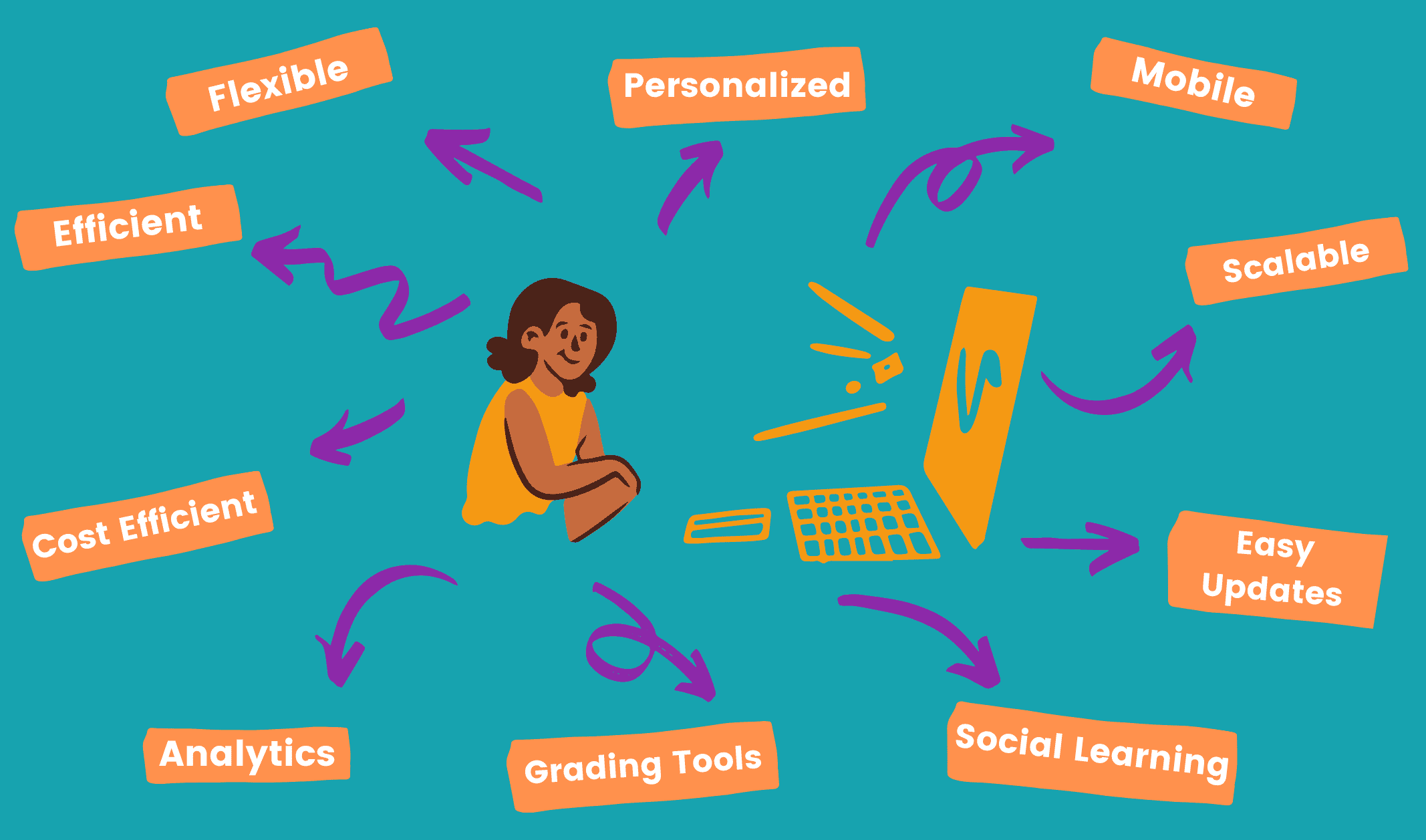As cloud computing and online SaaS services have expanded, so have the methods that can be used for online training, making them more accessible and reliable. An online learning management system like iSpring, often known as an LMS, can help learners, professionals, small businesses, and pretty much anybody who wants to learn since it no longer requires a physical classroom or textbooks that must be ordered through the mail. As many of these businesses provide free trials or other demos, it is pretty simple to try them out before purchasing the one that best suits you. This article will explain who utilizes LMS and why it is such a brilliant idea.
What is an LMS, and how does it work?
Software designed for online learning programs is known as a Learning Management System (LMS). When used in educational settings, it accomplishes the following goals:
- Administration.
- Tracking.
- Reporting.
- Documentation.
- Delivery.
It acts as a link between the teachers and the people they are trying to reach. Tutors can more easily provide learners with well-organized course materials using an LMS. Several features are available on this virtual platform, including administering assessments, keeping tabs on student progress, and more. The LMS market has grown tremendously since its beginnings and now exceeds a ten-billion-dollar valuation. Learning Management Systems have become the new normal because they can be used repeatedly and changed as needed. They are also cheap and easy to use.

Who uses LMS?
E-learning has led to a rise in the use of learning management systems (LMS). In addition, the demographics of the audience have broadened. A learning management system (LMS) will be used in any industry where distance learning is involved at some point in the future.
The following is a breakdown of the types of people who use LMS:
Pharmaceuticals and Biotechnology:
One additional area where LMS helps trainers and learners connect is in the education sector. Professionals in the biotech and pharmaceutical industries require an effective LMS to keep up with the rapid changes in pharmaceutical technology, processes, and distribution methods. Learning and training can be tracked and monitored using this repository.
Marketing and Advertising services:
The worldwide market is changing rapidly, and online marketers and advertising experts must stay on top of the latest trends. A Learning Management System (LMS) that is specifically designed for their demands can be met.
Human resources departments:
To teach employees and management. Companies commonly use LMS courses to improve the abilities of their essential employees or as a requirement for promotions.
Professional groups:
Trade organizations in regulated areas such as medical, engineering, and financial services use LMS to meet compliance training requirements for their members’ licenses or to provide specific training for their members’ niches.
Entrepreneurs:
With a Learning Management System (LMS), anyone can give short-term courses in accounting, internet marketing, writing, and other skills-based subjects.
Software Industry:
The use of LMS in the software business, which has long been a friend of e-learning, has grown in recent years. There are a lot of people in the IT field that want to continue their education while working full-time. Learning management systems (LMS) have always been facilitators.
As a whole, the software business faces a slew of difficulties. One of the most daunting is the requirement to train people worldwide on a wide range of complex goods and systems. Both of these things are important, but they must be done simultaneously. As the last point, every software corporation needs to stay up-to-date on the latest developments in tools and technologies, languages, and internal products. An efficient LMS platform enables these firms to overcome geographical and demographical obstacles and bring together learners from different locations.

A company’s LMS should have the following features:
- Employees are reminded of introductory training courses through automatic registration.
- Advanced firewalls, authentication, and single sign-on security capabilities are all included in this new version.
- White labeling: Creating online material consistent with the brand’s identity.
- Students from around the world can benefit from the availability of training materials in various languages.
Healthcare:
There is a pressing need to train an ever-expanding number of medical personnel in medical equipment and crucial operations. A well-structured Learning Management System is crucial for these practitioners because most of the training is repetitious.
Conclusion
A learning management system (or LMS) provides a fresh avenue to gain the skills and knowledge you need to remain competitive or keep abreast of cutting-edge developments in your field. We’ve highlighted the usual LMS users above, but we haven’t included the one who will profit from LMS: the person who craves information.